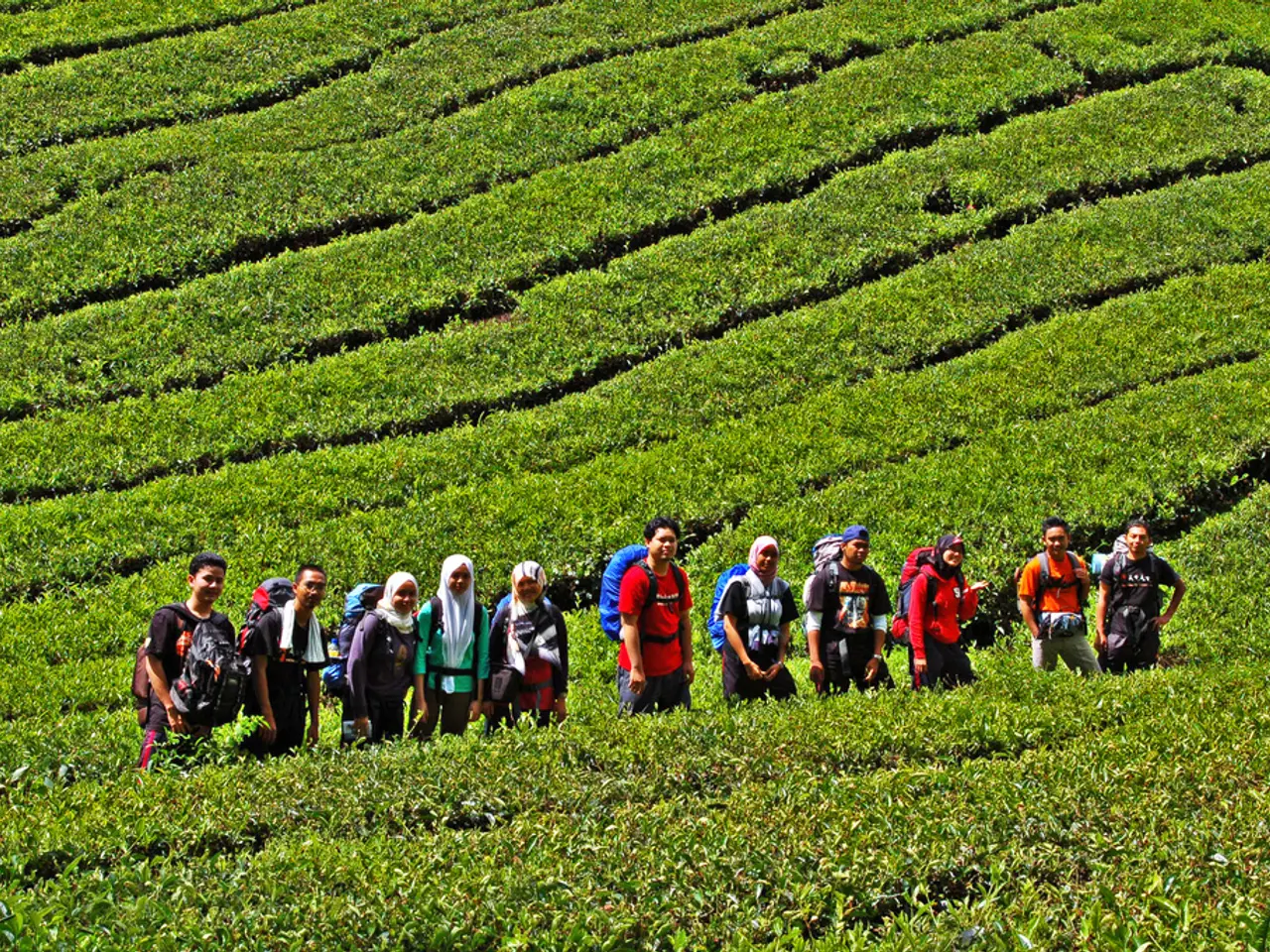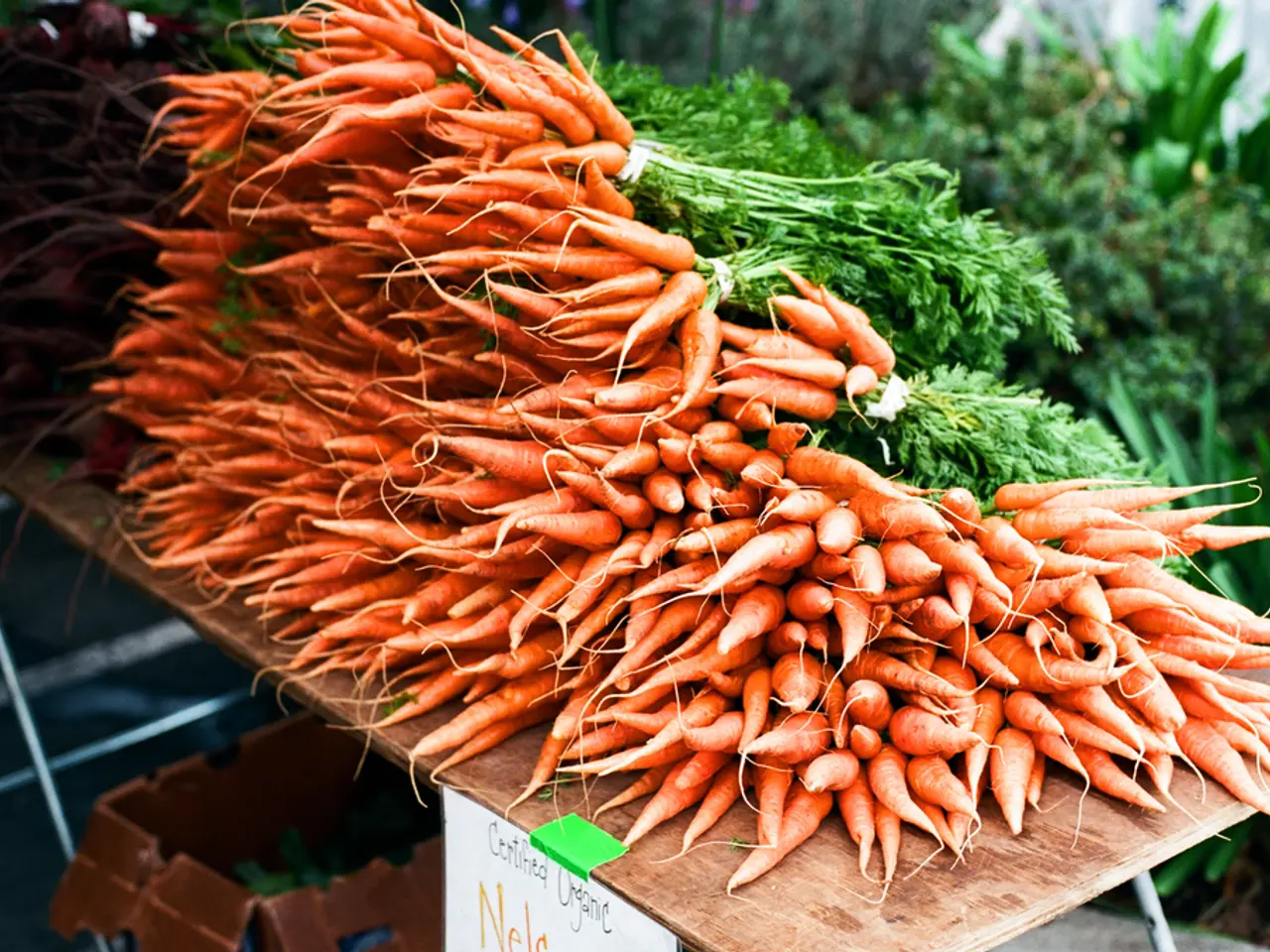Protecting the Legal Property Claims of Small Farmers
The United Nations Guidelines on the Responsible Governance of Tenure of Land, Fisheries, and Forests, often referred to as the Voluntary Guidelines, have been established as international standards to improve the management of tenure rights in these essential natural resources. The guidelines, which focus on food security and sustainable development, provide a framework for governments, civil society, and other actors to ensure transparent, accountable, and equitable administration of land, fisheries, and forests [1][3].
One of the primary objectives of these guidelines is to secure the rights of smallholders and indigenous communities. This is achieved by recognizing and protecting their customary and traditional tenure rights, promoting inclusive governance systems, improving access to justice and dispute resolution mechanisms, and supporting tenure security measures that empower these communities to exercise control over their resources [1][3][5].
In countries like Bolivia and Peru, which have significant indigenous populations and smallholder farmers heavily reliant on natural resources, the Voluntary Guidelines play a crucial role. They support national efforts to formalize and recognize communally held lands and forests, strengthening indigenous peoples' legal ownership and use rights [1][3][5]. These countries are encouraged to incorporate these principles into their national laws and policies, ensuring that indigenous and smallholder tenure rights are respected and protected against external pressures such as large-scale agriculture, mining, or logging [1][3][5].
This alignment with sustainable development goals and commitments under international agreements helps safeguard traditional livelihoods, cultural identity, and biodiversity conservation [1][3][5]. In essence, the Voluntary Guidelines foster responsible governance models that secure tenure rights for vulnerable groups, which is essential in Bolivia and Peru where indigenous and smallholder communities depend on land, fisheries, and forests for their subsistence and cultural survival [1][3][5].
The Voluntary Guidelines, passed by the United Nations Committee on World Food Security in May 2012, are the first global instrument of international law to regulate secure and fair access to natural resources and conditions for land investment [1][3]. Organisations like Welthungerhilfe are involved in educating all actors about the content of the Guidelines in Bolivia and Peru [1][3].
Peruvian leader Pedro Castillo believes that if properly applied, these Guidelines could secure smallholders' right to food in the long term and prevent conflicts [1][3]. The Guidelines are based on internationally accepted and binding human rights [1][3]. Welthungerhilfe is educating government representatives and community officials on the contents of the Guidelines, developing strategies with various actors to influence political opinion-makers in favour of the Guidelines, and creating dialogue with all involved parties to apply the Guidelines and find constructive solutions to secure smallholders' land rights [1][3].
It is important to note that implementing the Voluntary Guidelines is voluntary. Welthungerhilfe, in collaboration with its partners, is also developing an interactive data platform for compiling and disseminating legal developments and practical experiences regarding land use [1][3]. This platform aims to facilitate the sharing of best practices and lessons learned, further promoting the responsible governance of tenure of land, fisheries, and forests worldwide.
- The Voluntary Guidelines, based on international human rights and scientific understanding, provide a framework for fostering responsible governance that secures tenure rights for vulnerable groups, particularly smallholders and indigenous communities, in managing food security and sustainable development.
- Incorporating the principles of the Voluntary Guidelines into national laws and policies can help safeguard traditional livelihoods, cultural identity, biodiversity conservation, and ensure fair access to natural resources in countries like Bolivia and Peru.
- Organisations, such as Welthungerhilfe, play an essential role in educating various actors about the content of the Voluntary Guidelines, in countries like Bolivia and Peru, and promoting their implementation through dialogue and collaboration with government officials, industry leaders, and educational institutions.
- The Guidelines encourage the use of sustainable practices in industry and business, which have the potential to promote energy efficiency, environmental-science opportunities, and finance the growth of education and self-development for smallholder communities, thereby improving overall quality of life.




